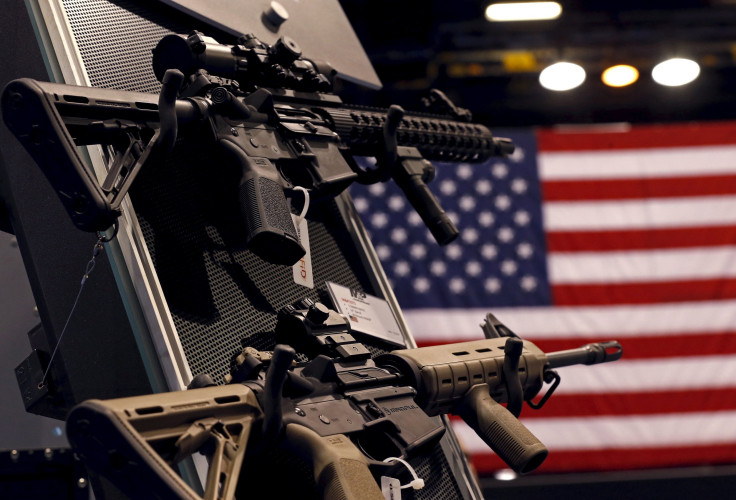
The Supreme Court decided not to consider a challenge to an gun ban in a Chicago suburb that would have affected assault weapons bans in California and other states and cities. Gun rights advocates say that they laws violate enumerated second amendment rights. The Supreme Court seems to be the only political institution disinterested in a potential rewrite of gun laws. In fact, Google searches interest for the “assault weapon” have been at the highest levels since the 2012 murder of 20 children and 6 adults at Sandy Hook Elementary School.
Interest in assault weapons bans has increased after the San Bernardino shooting in California, where two terrorist suspects with links to ISIS reportedly circumvented laws in that state that prohibit the purchase of military-style rifles and ammunition.
A national ten-year ban on assault rifles ended in 2004, and some states and municipalities have continued to restrict military-style rifle. The Supreme Court decision preserves a Highland Park gun ban that is similar to those in Maryland, California, Connecticut, Hawaii, Massachusetts, New Jersey and New York, according to the Washington Post.
California’s weapons ban is riddled with loopholes, as evidenced by the legal purchase of the Smith & Wesson M&P15 assault rifles used by Syed Rizwan Farook and Tashfeen Malik, the San Bernardino massacre shooters. After slightly modifying their .223-caliber rifles they were able quickly unleash a torrent of bullets, killing 14 people and wounding 17.
In a rare Oval Office address on Sunday, President Obama called for a ban on gun sales to suspected terrorists No Fly List, a scaled-down request that follows more ambitious but failed efforts to pass gun control legislation following Sandy Hook.
The No Fly List itself is controversial. It prohibits people who have not been charge with a crime from a recognized constitutionally recognized right to travel. As Slate’s Eric Posner point out in his article The Republican-Democratic Divide on Civil Liberties, the idea of people on the suspected terrorist list not being able to buy guns flips the political narrative.
“Republicans were never concerned about the no-fly list, which they saw as a serious effort to combat international terrorism, but they are exercised now that the right to bear arms is at stake,” he writes.
Still, the Supreme Court has upheld the No Fly List. Taken with its disinterest in overturning city and state gun laws, a ban on terror suspects would likely survive a challenge in the courts. Whether such a limited ban would be born out of the Hill is an open question. So is the proposed limited ban’s effectiveness; neither Malik nor Farook purchased the weapons themselves, and neither were on a terrorist watch list.
What is clear following the Supreme Court decision is that unlike the victims of its loopholes, California’s assault weapon ban, is still alive.
© 2025 Latin Times. All rights reserved. Do not reproduce without permission.




